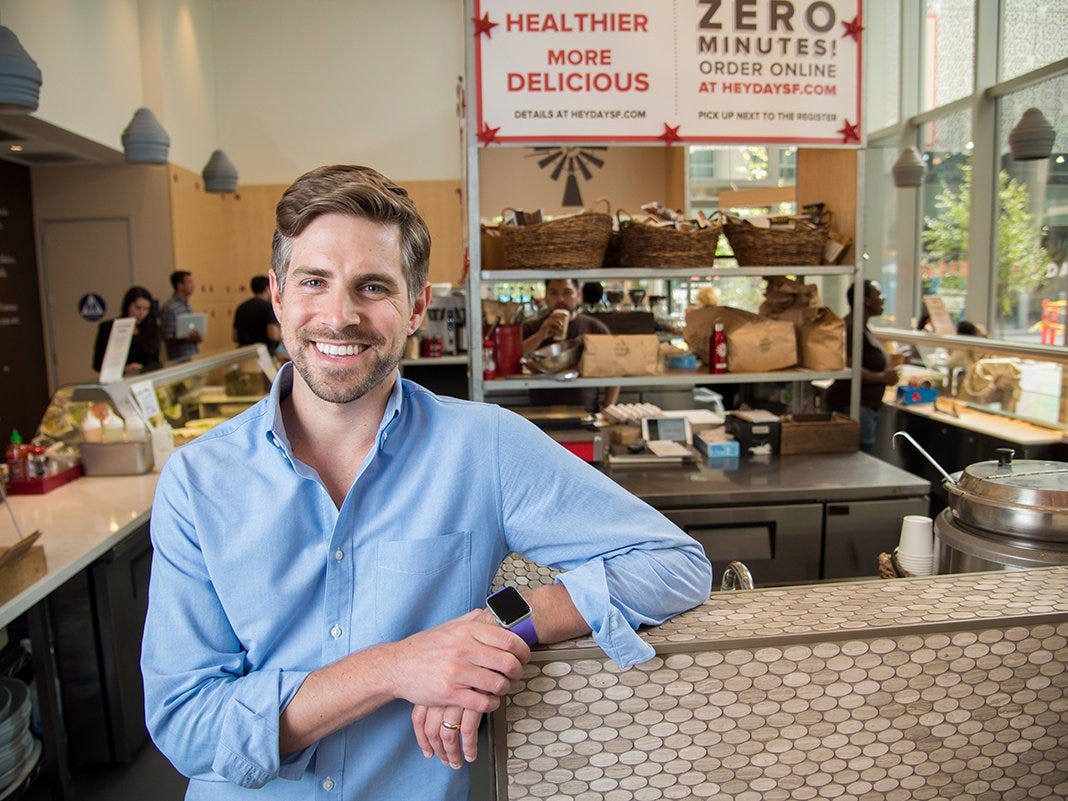This article is part of Fintech Leaders, a newsletter with 70,000+ builders, entrepreneurs, investors, regulators, and students of financial services. I invite you to share and sign up. If you enjoy this conversation, please consider leaving a review on Apple, Spotify, or Youtube.
I sat down with John Waldmann, Founder & CEO of Homebase, a company on a mission to help modernize local business teams in the US. Since launching in 2014, Homebase has grown to support over 150,000 businesses and 3.8 million workers, processing hundreds of millions of shifts annually.
In this episode, we discuss:
Why founders should have more courage and conviction in their early cultural choices
"The Overton window is much wider than you think it is... how radically different you can think about what your culture is, how you work, the expectations of people who join your company, you could be far, far more different than you think you can."
Building a distinctive company culture requires intentional choices from day one - a lesson John learned the hard way during Homebase's early days. According to John, early-stage founders dramatically underestimate their latitude in establishing unique cultural norms. For Homebase, this translated into an unconventional approach: a laser focus on serving local businesses that went far beyond product development. The company even started by sourcing engineers through Craigslist posts that prioritized small business experience over traditional Silicon Valley pedigrees. One early hire's mother owned a small business, another worked in coffee shops - experiences that proved more valuable than top-tier tech credentials.
This hiring philosophy is not the most common, but Waldmann found wisdom in it. "I couldn't evaluate their code, but I could evaluate their craft and their connection to our mission." Nearly a decade later, as Homebase serves 150,000 businesses, that early cultural conviction has paid compound interest.
Creating a culture of ownership and high-velocity decisions
"Everybody at Homebase is probably sick of hearing me talk about operating velocity...the cycle time with which we operate as a company...matters so much to our success."
Velocity isn't just another Silicon Valley buzzword about moving fast – it's about creating systems that enable quick, confident decision-making throughout the organization. Today at Homebase, this translates into a culture where individual contributors are empowered to drive decisions in their domains, rather than getting caught in consensus-building processes. "Everyone at Homebase is probably sick of hearing me talk about operating velocity," he admits with a laugh, "but the cycle time with which we operate matters so much to our success." The result can be a company that rapidly responds to customer needs while maintaining high quality standards.
The dangers of consensus decision-making and the power of individual ownership
"I hate consensus decision-making. I believe so strongly in accountability and ownership. And those two things are so paired together - you want ownership, you have to have accountability."
One of John's most decisive leadership principles is his stance against consensus-based decision-making – a position that's surely raised some eyebrows from outsiders in an era where "collaborative culture" was encouraged (at least until a couple of years ago). While he acknowledges that getting broad input is valuable, Waldmann argues that requiring consensus often leads to watered-down decisions and slowed execution – death by a thousand meetings. Instead, Homebase operates on a model of clear ownership that would make Andy Grove proud – identifying who is ultimately responsible for each decision and empowering them to move forward after gathering appropriate input. "You want ownership? You have to have accountability." Sometimes the best way to serve your mission isn't to get everyone to agree – it's to empower the right people to act decisively and own their decisions.
The future of AI in small business... and a lot more!
"The greatest weapon that we have as a country to make sure that AI is a job creator and a creator of good jobs is local businesses... when you think about using AI to save time for small business owners, you're not eliminating a small business owner. All you are doing is creating more small business owners."
John is incredibly optimistic about AI's potential to empower small businesses rather than replace them – a thoughtful take in today's fear-driven discourse about the technology. Homebase's data, drawn from over 275 million processed shifts, shows they already save business owners 5-10 hours per week through automation – and Waldmann sees AI dramatically expanding this impact in ways that might surprise tech pessimists. "When you use AI to save time for small business owners, you're not eliminating jobs – you're creating more small business owners," he argues, pointing to early results from their AI initiatives launched in fall 2023.
Jonh’s vision is purely about enabling more entrepreneurs to start and scale local businesses in an era where main street desperately needs innovation. "Small businesses are the greatest creators of economic opportunity we have in this country," Waldmann reminds us, citing how many of their customers are first-generation entrepreneurs or started without college degrees. By reducing the administrative burden through technology, Homebase aims to help create the next generation of successful small business owners - AI will only enhance this and it will democratize entrepreneurship.
Want more podcast episodes? Join me and follow Fintech Leaders today on Apple, Spotify, or your favorite podcast app for weekly conversations with today’s global leaders that will dominate the 21st century in fintech, business, and beyond.


























Share this post